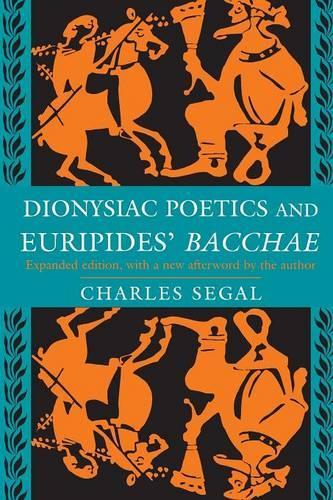
Dionysiac Poetics and Euripides' Bacchae: Expanded Edition
(Paperback, Expanded Edition)
Publishing Details
Dionysiac Poetics and Euripides' Bacchae: Expanded Edition
By (Author) Charles Segal
Princeton University Press
Princeton University Press
27th January 1998
Expanded Edition
United States
Classifications
Professional and Scholarly
Non Fiction
Literary studies: ancient, classical and medieval
Literary studies: plays and playwrights
882.01
Physical Properties
Paperback
440
Width 152mm, Height 235mm
624g
Description
In his play Bacchae, Euripides chooses as his central figure the god who crosses the boundaries among god, man, and beast, between reality and imagination, and between art and madness. In so doing, he explores what in tragedy is able to reach beyond the social, ritual, and historical context from which tragedy itself rises. Charles Segal's reading of Euripides' Bacchae builds gradually from concrete details of cult, setting, and imagery to the work's implications for the nature of myth, language, and theater. This volume presents the argument that the Dionysiac poetics of the play characterize a world view and an art form that can admit logical contradictions and hold them in suspension.
Reviews
"Here the fruits of intensive and sustained scholarship are combined with a sophisticated awareness of current critical theory to offer a powerful reading of one of the greatest plays of the tradition... Segal offers an exemplary instance of the fusion of traditional scholarship and current critical practice."--Cyrus Hamlin, Recherches Semiotiques/Semiotic Inquiry "Well-written and well-documented, based on extensive reading and intensive study, [the book] reveals the Bacchae as a much more beautiful, more interesting, and more important play than has thus far been realized."--W. J. Verdenius, Mnemosyne
Author Bio
Charles Segal is Walter C. Klein Professor of the Classics at Harvard University. His many books include Poetry and Myth in Ancient Pastoral and Lucretius on Death and Anxiety, both published by Princeton University Press.
